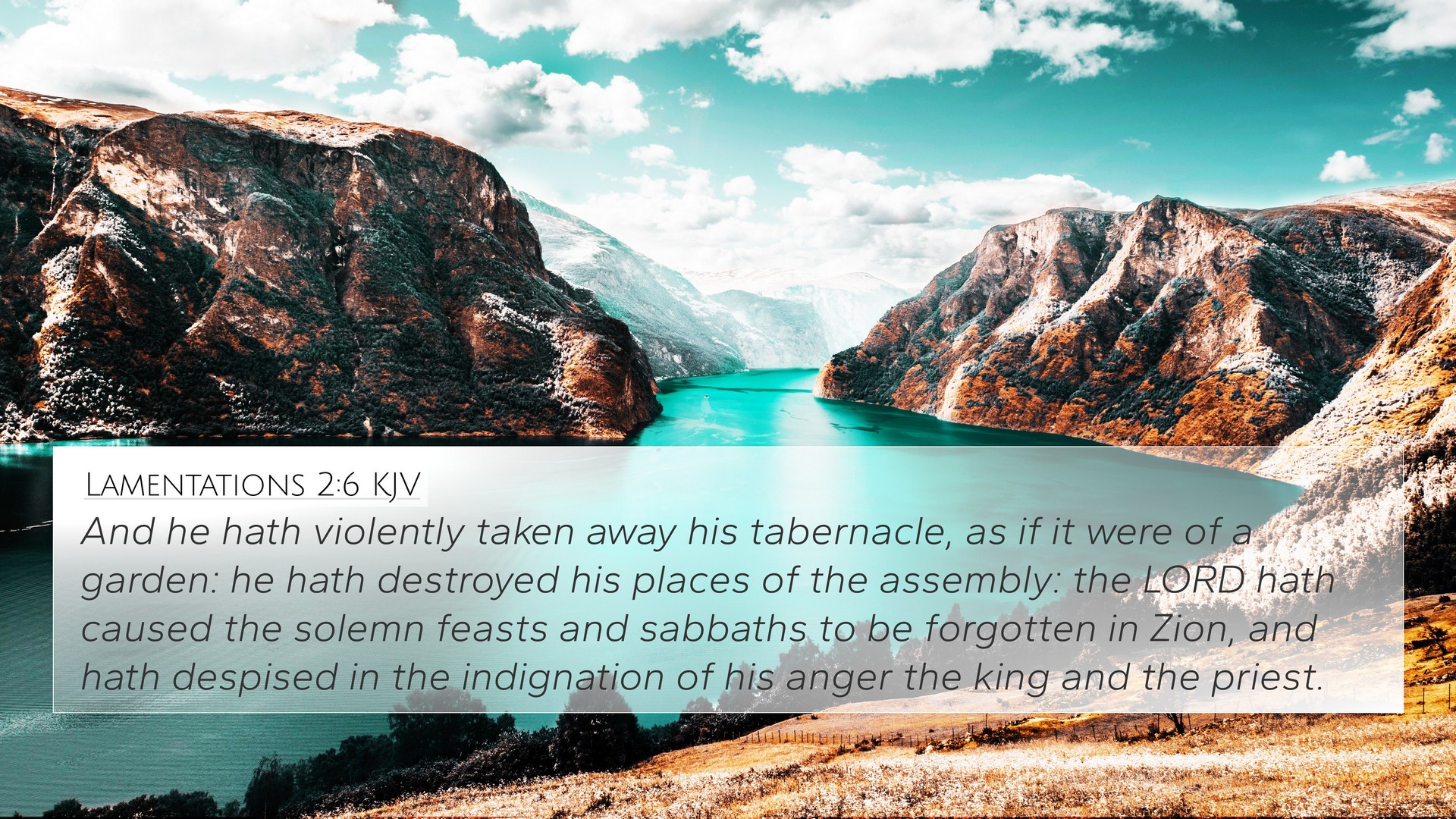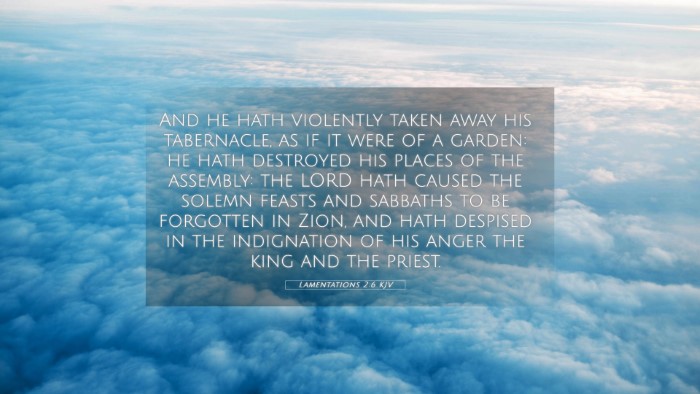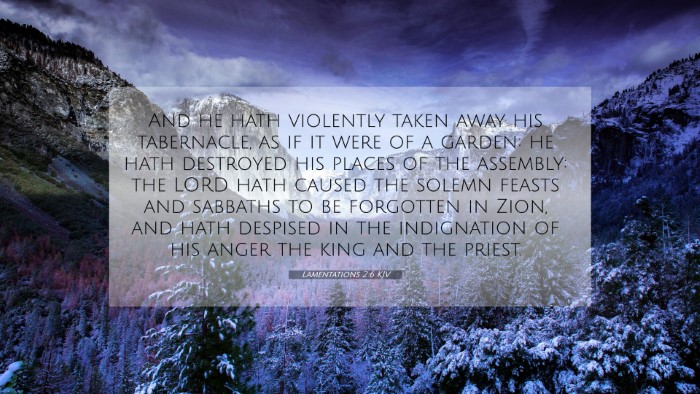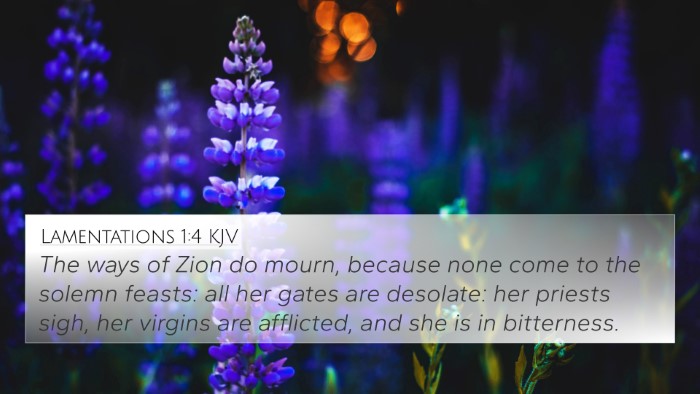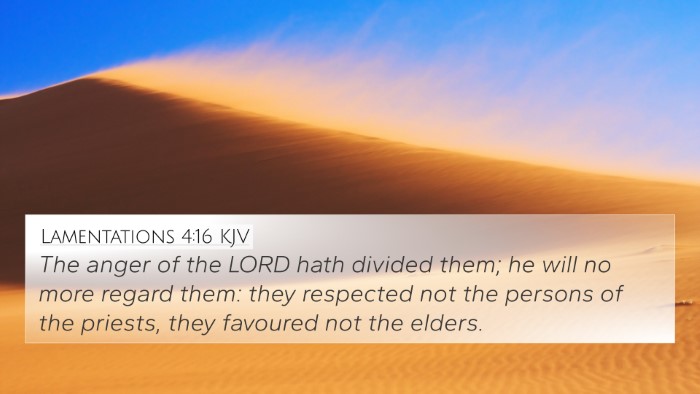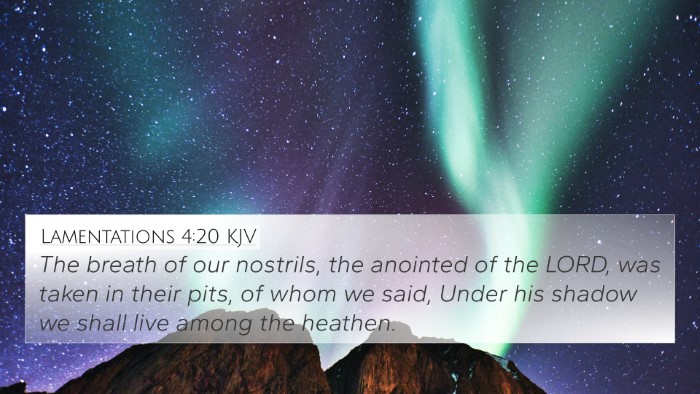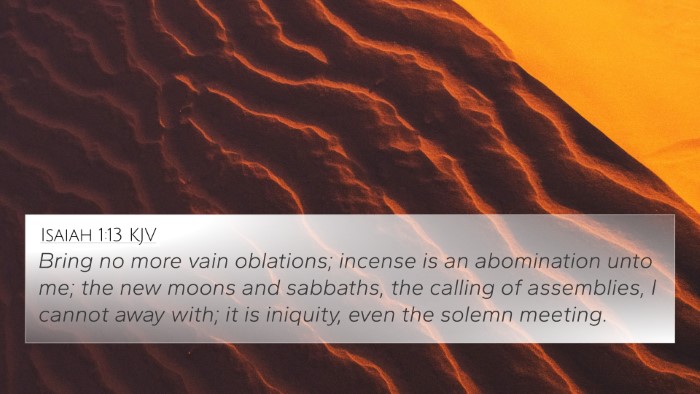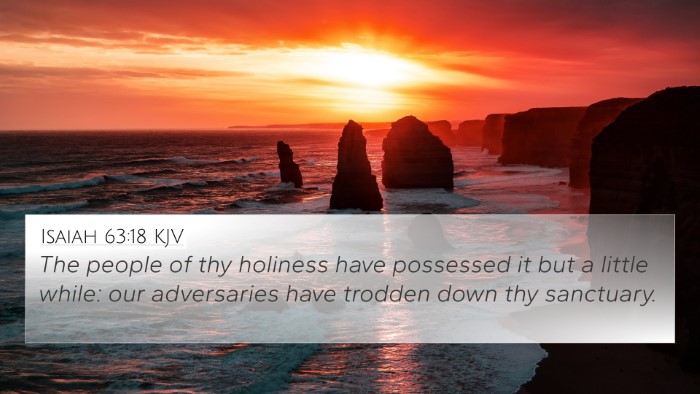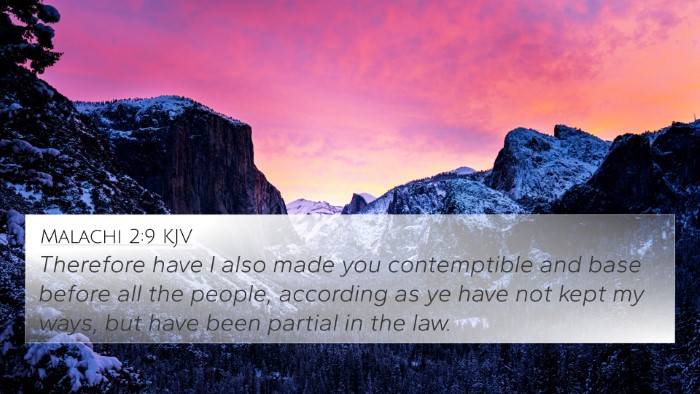Lamentations 2:6 - Commentary Summary
Lamentations 2:6 states: "And he hath violently taken away his tabernacle, as if it were of a garden: he hath destroyed his places of the assembly: the LORD hath caused the solemn feasts and sabbaths to be forgotten in Zion, and hath despised in the indignation of his anger the king and the priest."
Verse Meaning Summary
This verse reflects profound sorrow for the destruction of Jerusalem and the temple, symbolizing God's presence among His people. It highlights God's judgment as he allows the temple to be destroyed, indicating a severe separation between God and His people due to their sins. The tabernacle, a representation of God's dwelling, is likened to a garden that has been violently taken away, demonstrating the abruptness and tragedy of the exile. The feasts and sabbaths, significant for communal worship and remembrance, have been forgotten due to the desolation wrought by divine wrath.
Commentary Insights
- Matthew Henry notes that the tabernacle's destruction signifies the cessation of divine worship and the loss of God’s presence. It emphasizes sorrow for the loss of national identity and spiritual connection.
- Albert Barnes reflects on the “places of the assembly,” interpreting this as the end of communal religious life. He observes that God's anger has led to a forgetfulness of the institutions that were meant to bind the people together in worship.
- Adam Clarke emphasizes the violent nature of the destruction, drawing attention to how swiftly God’s judgment fell upon the people as a result of their infidelity. He highlights the anguish of the loss of sacred rituals and the failure to observe God’s ordinances due to this judgment.
Related Bible Cross-References
- 1 Kings 9:7-9 - Discusses the consequences of idol worship and the destruction of the temple.
- Jeremiah 25:8-11 - The prophecy of destruction as a result of the people's disobedience.
- Mosiah 1:13 - References the loss of religious practices due to national calamity.
- Isaiah 64:10-11 - Speaks of the desolation of God's house and the reproach of the people.
- Ezekiel 10:18 - The departure of God's glory from the temple, symbolizing abandonment.
- Daniel 9:17-19 - A prayer for the restoration of Jerusalem and recognition of past transgressions.
- Psalm 74:3-8 - Describes the destruction of the sanctuary and the lamentation of God's people.
Understanding Connections Between Bible Verses
The connections between Bible verses such as those mentioned above reveal the thematic undercurrents of judgment, worship, and restoration woven throughout Scripture. Understanding Lamentations 2:6 in the wider context of prophetic literature enriches our grasp of the consequences of turning away from God. It becomes evident how the past actions of the Israelites led to current spiritual desolation—a sentiment echoed throughout the prophetic books and the history of Israel.
Tools for Cross-Referencing
Engaging with a Bible concordance or a Bible cross-reference guide is essential for deepening one’s understanding of inter-textual dialogues. Utilizing cross-referencing Bible study methods can enhance personal study, enabling individuals to see how Scripture interprets Scripture. By linking verses like Lamentations 2:6 with others, believers can better comprehend God's character, His standards, and the consequences of disobedience.
Conclusion
In conclusion, Lamentations 2:6 serves as a poignant reminder of the serious nature of divine judgment. The insights drawn from public domain commentaries highlight the central themes of God’s presence, judgment, and the devastation of lost worship due to sin. By employing cross-referencing techniques with various scripture passages, readers can cultivate a deeper understanding of how this verse fits into the larger narrative of redemption and restoration woven throughout the Bible.
How to Use Bible Cross-References
When searching for related verses, consider the themes within the passage. Ask questions such as:
- What does this verse say about God's nature?
- How do the consequences outlined in this verse reflect broader biblical themes?
- What other scriptures speak about God's judgment or restoration?
- Are there prophetic voices that echo similar sentiments?
